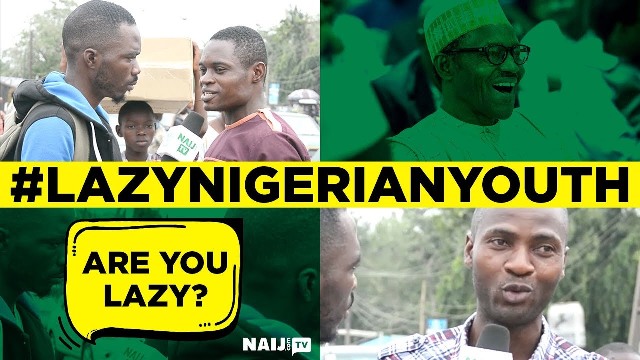 Nigerian digital media and news platform, Naij.com, debated President Buhari's comments.
Nigerian digital media and news platform, Naij.com, debated President Buhari's comments.
[This opinion piece appears in the latest edition of The Round Table: International Journal of International Affairs. Opinions expressed in the journal and on this website do not reflect the position of the Round Table.]
Empirical and theoretical data suggest that the executive president embodies the foreign policy of his country. He serves as his country’s chief image maker in the international community. He enters into alliances and agreements with other countries, which may or may not even require legislative approval depending on the regime type. As the embodiment of his country’s foreign policy, the actions and utterances of the president – particularly among the members of the international system – determine how the country is perceived internationally. For this reason, the executive president should always be mindful of his speeches and comments abroad to avoid diplomatic gaffes that could potentially misrepresent his country and people. He is expected to pursue with evident gusto those ideals that would promote the international standing of his country and nationals – both at home and in the diaspora.
Muhammadu Buhari was popularly elected and inaugurated as Nigeria’s president in 2015. He came at a time when Nigeria’s foreign policy was nose-diving and needed a push-up in terms of both the management of the domestic environment of foreign policy and the country’s external image. However, since his assumption of office he has consistently made unguarded statements or negative comments about Nigeria in international forums. This orientation represents a major undoing of the Buhari government. It is confounding that the president who is supposed to be the image maker of his country has been the one running commentaries advertising the negativities of Nigeria.
In 2016, though it was not President Buhari’s statement that Nigeria was a ‘fantastically’ corrupt country, he did not rebut it. Ahead of the Commonwealth anti-corruption summit in London which President Buhari was scheduled to attend, David Cameron, while briefing the Queen of England, tagged Nigeria as ‘fantastically’ corrupt. The exchange took place at Buckingham Palace during an event to mark the Queen’s 90th birthday (BBC News, 10 May 2016). At the Commonwealth Secretariat in London during the summit, Dominic Waghorn, Sky News’ diplomatic editor, asked President Buhari in the presence of other dignitaries whether Nigeria was truly ‘fantastically’ corrupt as claimed by the British prime minister (PM) and he responded in the affirmative. While it was undiplomatic for the British PM to make such a remark, President Buhari’s crude admission is much more condemnable.
More so, in 2016 President Buhari disparaged and bad-mouthed Nigerians before the committee of nations. In an interview with The Telegraph (London), Buhari labelled some Nigerians abroad as criminals. He claimed that the reason Nigerians were in trouble abroad was their criminality, without recognising that such statements could further undermine the country’s precarious image or worsen the plight of Nigerians abroad or those seeking to emigrate.
Furthermore, in April 2018, during a panel appearance with world leaders at the Commonwealth Business Forum in London, Buhari described Nigerian youths as lazy and uneducated. Mr Buhari said about 60% of the population was below the age of 30 and many of them had not attended schools. He further said slightingly that many belonging to this demographic group did not want to do anything – yet wanted free housing and healthcare – because of Nigeria’s status as an oil-producing state. President Buhari’s remarks and coarse language represented a great disservice to the Nigerian youths reputed for their industry and enterprise.
Without a doubt, the above gaffes abroad have exposed President Buhari’s shallowness and that of his handlers in foreign policy-related matters. International platforms are used to advertise one’s strength, not negativities.
Segun Oshewolo is with the Department of Political Science, University of Ilorin, Ilorin, Nigeria. He lectures in the Department of Political Science and International Relations, Landmark University, Omuaran, Nigeria. Agaptus Nwozor, PhD, is a Senior Lecturer at Landmark University, Omu Aran, Kwara State, Nigeria.



